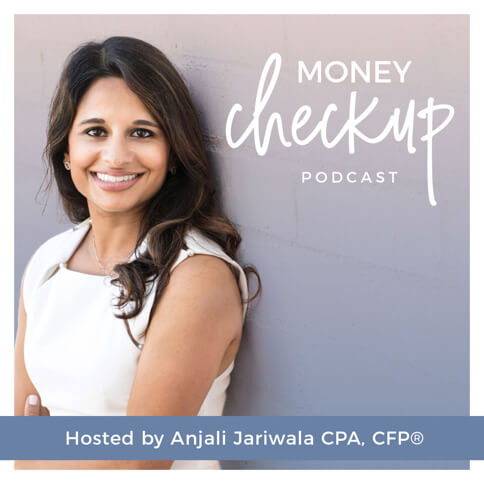The next generation of financial planners — the current generation, really — isn’t interested in only managing investments. We can do that, of course, and we do it for most of our clients. But we also focus on planning for life’s changes, from buying homes to educating children to retiring comfortably.
The right financial advisor for the 21st century isn’t just someone you call when you get a sudden raise or windfall. They’re a partner in your success. They have your best interests at heart and can pull all the pieces of your financial life together — earnings, savings, investments, charitable giving and more — to maximize what your money can do for you.
Finding an advisor whose style fits yours may take some time. But it’s worth it to establish a connection that might last for decades.
What to ask a potential financial advisor
Start your conversations with potential financial planners with a few key questions.
Are you a fiduciary?
Not all financial planners are required to act in their clients’ best interest. Only fiduciaries have an ongoing ethical duty to put their clients’ interests ahead of their own. They must recommend the products that are best for their clients, regardless of any commission (or lack thereof) they might earn. Fiduciaries are expected to monitor clients’ investments and make themselves available for regular conversations about clients’ financial health.
Non-fiduciaries aren’t necessarily giving bad advice. They’re simply held to a lower standard of conduct, called suitability. A suitable financial professional must have an adequate reason to think their recommendations meet clients’ needs, but their recommendation may not be in your best interest, especially when financial products are involved. Also, once investments are made and client meetings end, these advisors don’t necessarily have to keep an eye on things — you may need to dot hat yourself.
How are you compensated?
Financial planners can be paid in two different ways: Earning commission on financial products, which are paid by financial institutions, or directly charging their clients.
I am a fee-only planner, which means I charge my clients an annual dollar amount no matter what life throws at them that year. Other fee-only financial professionals may charge clients based on the size of assets under management, such as an annual fee of 1% of the total amount of money they manage. Fee-only planners usually adhere to a fiduciary standard, as they are not permitted to accept fees outside of what their clients pay them.
Fee-based planners may charge their clients fees like those above. But there’s one critical difference: They can also earn commissions from financial institutions for selling their products. This means they can push clients toward products that pay them the highest commissions. Fee-based planners typically adhere to the suitability standard.
What credentials do you hold?
My full title is Anjali Jariwala, CFP®, CPA.
“CFP” stands for CERTIFIED FINANCIAL PLANNER™, which means I have taken course work, passed an exam and met experience requirements to use the designation. I’m also a CPA, or Certified Public Accountant, which requires an advanced degree, passing a difficult exam and meeting experience requirements. If your financial planner is CPA, they may be able to provide tax planning advice and even prepare your tax return if they offer that service.
Some financial planners are CFAs, or Chartered Financial Analysts. Many CFAs end up working as financial analysts for companies or on Wall Street. Others go into private practice. If you choose to work with a CFA, make sure you ask what services they can and cannot provide.
The CPA and CFA designations are not necessary when seeking out a financial advisor, but it provides more credibility, since you know the person had to go through more education and pass a difficult exam.
How to determine whether an advisor is right for you
Once you’ve met a potential financial advisor, it’s time to ask yourself some questions. What money stressors or concerns do you and your family have? What do you hope to achieve working with your advisor? What financial goals do you have in the short and long term? Discuss these goals and challenges with a potential planner, and try to imagine that person helping you reach those goals.
It can be helpful to ask a potential advisor what types of clients they serve. FIT Advisors, for example, focuses on physicians and business owners. I understand the specific needs and opportunities those industries present and am able to anticipate challenges my clients will face, because I’ve worked with many clients in similar situations.
Next, spend some time thinking about how much you want to invest in your financial future. Fees can vary widely depending on advisors’ experience and credentials. A more experienced advisor might be more costly, but they may also give you more peace of mind. And an advisor with more credentials might charge higher fees, but if it means you don’t have to pay for tax preparation services, you might save money later in the year.
You won’t have to talk to your financial advisor every day, but remember that managing your finances can be stressful. If someone rubs you the wrong way or you don’t feel your personalities match, know that those feelings are going to be exacerbated during challenging times in your life. Don’t feel bad about saying no to an advisor — it is a perfectly fine reason to choose someone else.
How to spot potential problems
Financial planning is a large and diverse industry. It includes people with valid, up-to-date credentials and deeply held ethics. It also includes people who are primarily seeking to make money, or who use the language of financial planning but don’t hold the right certifications.
Watch the language that financial professionals use. If they offer “coaching,” they may not be certified CFPs, which means they may not have the training and background to provide sound financial advice. Insurance brokers may have the right certifications, but their focus will be on insurance products because that is what their skill set is. They may not be the best fit if you want someone who can look at your entire financial picture.
You can use several professional databases to limit your advisor search to people with the credentials and services you want. The National Association of Personal Financial Advisors, or NAPFA, keeps a database of certified advisors. If you know you want a fee-only advisor, use the Fee Only Network to search for options. The XY Planning Network also keeps a list of fee-only planners, focused on those who serve Gen X and Millennial clients. It is also a good idea to reach out to your professional network and friends and family. More and more people are using financial advisors today, so you may be surprised how many referrals you receive.
If you’re ready to start working with an advisor, do your homework to figure out what type of professional you want to work with. Do you need someone to do a one-time assessment, or are you interested in a long-term relationship? If you want a one time assessment, can you hold yourself accountable to ensure recommendations are implemented? Do you have a unique need, career, or family situation which requires someone with that specific experience? All of these are good questions to ask yourself and to the advisor you are interviewing.
Most planners will offer clients a free call before both parties commit to working with each other. On that call, be honest about your needs and ask your potential advisor whatever questions you have. As an advisor, I use these initial calls to also see if I want to work with the other person and if I can genuinely help them. The relationship is a two-way street, so it should be a good fit on both sides. If it is the right fit, you should feel great after your conversation, even relieved!
I’ve spoken to prospects who signed up with me even though I was the only person they talked to and others who signed up with me after vetting 10 or more advisors. This could be the start of a decades-long relationship, so take the time to make sure it feels right.




